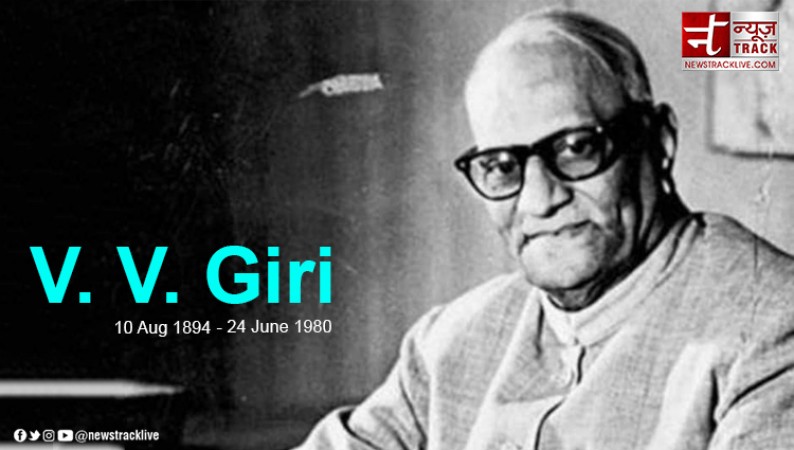
On August 10, 1894, a prominent figure in Indian history, Varahagiri Venkata Giri, was born in Berhampur, Odisha. Fondly known as VV Giri, he became the fourth President of India and left an indelible mark on the nation's political and social landscape. Beyond his presidential tenure, Giri was celebrated for his pivotal role in the country's trade union movement.
VV Giri's early life was marked by perseverance and a commitment to education. He studied law at the prestigious Oxford University and was deeply influenced by Mahatma Gandhi's ideologies during the Indian independence movement. He actively participated in the freedom struggle, advocating for non-violent civil disobedience to overthrow British colonial rule.
His interest in politics was matched by his passion for workers' rights and social justice. VV Giri championed the cause of laborers and played a significant role in founding the All India Railwaymen's Federation (AIRF) in 1924, a powerful trade union representing railway workers. He worked tirelessly to improve the working conditions and welfare of railway employees, earning him the respect and admiration of the working class.
As a trade union leader, VV Giri was known for his ability to negotiate effectively with employers and the government, securing better wages and benefits for workers. His charismatic leadership and determination to fight for workers' rights made him a prominent figure in the trade union movement, setting a precedent for future labor leaders.
Following India's independence in 1947, Giri's political career reached new heights. He served as India's first High Commissioner to Ceylon (now Sri Lanka) and later held key ministerial positions in the Union Cabinet, including Labor and Industries. His tenure as Minister of Labor saw several reforms aimed at protecting workers' rights, further solidifying his reputation as a champion of laborers.
In 1967, VV Giri was elected as the Vice President of India, a position he held until 1969. It was during this time that a constitutional crisis emerged, leading to a historic moment in Indian politics. In 1969, President Zakir Husain passed away, and Giri was elected as the acting President. However, due to ideological differences with the then Prime Minister Indira Gandhi, Giri resigned from his Vice Presidency to contest in the Presidential elections as an independent candidate.
The 1969 Presidential elections were intense, with Giri facing the official candidate of the ruling party. Despite being an independent candidate, he managed to secure the support of opposition parties and won the election, becoming the fourth President of India. His victory was a testament to his popularity and the faith people had in his ability to uphold the dignity of the highest office in the land.
As President, VV Giri continued to focus on the welfare of the marginalized and vulnerable sections of society. He used his position to advocate for social justice, educational reforms, and the promotion of culture and arts. His term as President was marked by his unwavering dedication to the ideals of democracy and unity.
On the occasion of VV Giri's birthday, we remember and celebrate the life of a remarkable statesman, a trade union icon, and a true advocate for the welfare of the common people. His legacy continues to inspire generations of leaders and citizens to work towards a just and equitable society. VV Giri's contributions to India's growth and development are a testament to the power of leadership, determination, and compassion in shaping a nation's destiny.